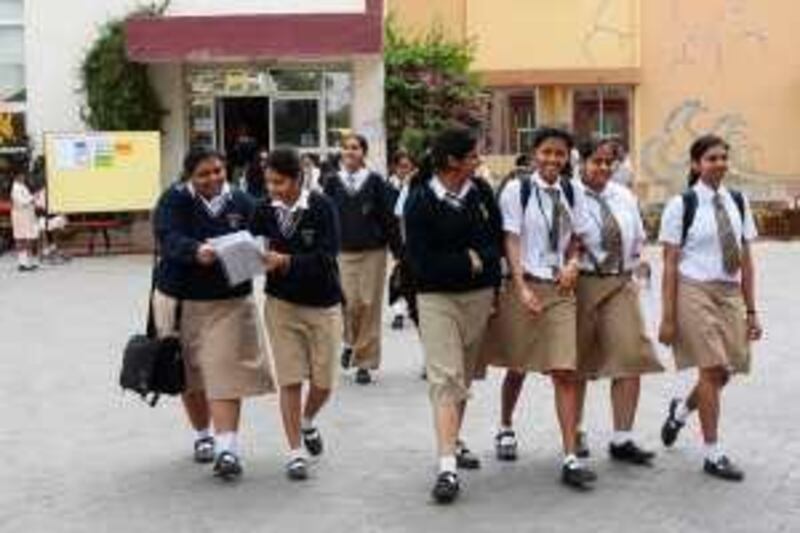When Vishal Chandran sat down yesterday at exactly 9am to begin his exam in chemistry, the Grade 12 student was not alone. Not by a long shot. He was just one of almost 1.5 million pupils taking part in a series of closely co-ordinated exam sessions that are unique to those studying the Indian curriculum around the world. The pupils who yesterday took the first exam - Grade 12 chemistry - had to start at precisely the time decreed by India's Central Board of Secondary Education (CBSE): 10.30am in India.
Students taking the same exam in 22 countries had to start at exactly the same moment, which meant, for example, that those in Ghana starting writing their tests at 5am, while those in the UAE had the relatively comfortable start time of 9am. In the coming days, about 5,225 students from Grade 10 and 3,612 in Grade 12 in the Emirates will complete their exams in a variety of other subjects at 14 centres across the country in similarly co-ordinated fashion. Around 17,000 students take the exams in the GCC, which has 110 registered Indian-curriculum schools. Worldwide, more than 1.46m students will take the exams this year, compared with 1.31m last year.
The Indian High School, Dubai, one of the key examination centres in the UAE, greeted around 600 anxious Grade 12 students early in the morning as they walked in for their chemistry paper. Most walked out with a smile on their faces, however, and many agreed the first paper was an easy one. "We were nervous because it was a crucial science subject. However, it all went well. The questions were direct and easy and I hope I did well," said Vishal. The smiling faces brought some relief to worried parents waiting outside. "Parents are more worried about exams than children these days," said Narendra Kumar, who was waiting for his daughter Nikita to finish her exam.
Another of the students, Jyothin Babu, said: "This one was surprisingly easy but there are many more coming. We have to get back home soon and start studying for the next paper." Ashok Kumar, principal of the Indian High School, Dubai, and a member of the governing council of the CBSE, said things had gone according to plan so far. Under new rules, the students were given 15 minutes to read the question paper before starting. The three-hour examinations are conducted with one supervisor for every 20 students. To keep things fair, students are not allowed to appear for the exams in their own school and have to travel to another one. "We cannot have our own students here so the exams can be conducted in a neutral way, including their supervision," said Vijay Mathu, principal of the Abu Dhabi Indian School. In the capital, two centres accommodated students from more than half a dozen schools, including Our Own English High School, Sherwood Academy and the Indian Islahi Islamic School. After they are completed, the papers are collected, resealed and sent back to the Indian Embassy in the capital, which had earlier distributed them to the test centres. All the papers will be sent in diplomatic bags to India, where they will be graded by teachers in schools across the country. The entire process takes two months and the eagerly awaited results are announced in May. M Vishnumoorthi, centre superintendent for the exams at the Abu Dhabi Indian School, also thought the first day went well: "When the students feel at ease, then we feel at ease." * The National






